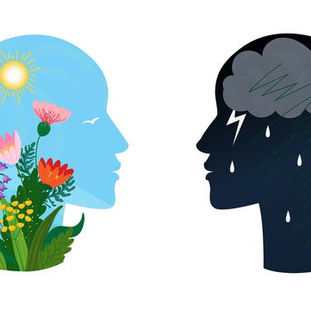
The Link Between Sleep and Mental Health: What Every Indian Should Know
4
12

60% Indians struggle with sleep deprivation show some recent research studies. Sleep issues are becoming more and more prominent in todays day. This tells us that sleep is often overlooked but it plays an important role in mental and emotional health. In this blog, we will explore how sleep affects mental health. We will also see some actionable tips for improving our sleep hygiene.
Relationship between Sleep and Mental Health
Sleep and health are indeed biologically connected. Poor sleep disrupts body chemicals called neurotransmitters like serotonin, dopamine and cortisol. This increases stress and anxiety. Thus, sleep has the power to regulate emotions, memory and decision making of a person.
If not well- rested and not slept well, one can experience:
Increased stress hormone
Higher risk of depression
Increased anxiety
Poor concentration and irritability
Difficulty in taking decisions
So, lesser the sleep, more the problems!
Common Sleep Disorders in India
Here are a few sleep disorders that we come under a risk of, if we are not resting well:

Insomnia
Insomnia is a condition in which a person faces difficulty in falling asleep, around 10-20% of Indians are affected by this condition.
Sleep Apnea
Sleep Apnea happens when there is a difficulty in breathing during sleep. This results in fatigue and mood disturbances while being awake.
Restless Leg Syndrome (RLS)
This refers to an uncontrollable urge to move legs due to an uncomfortable sensation in the legs. This makes it hard to sleep.
Delayed Sleep Phase Disorder
Finally, coming to an important concern regarding sleep which a lot of young adults have been facing, delayed sleep phase syndrome. This is a disorder of that affects the circadian rhythm of an individual. Here a person gets used to going to bed and waking up late consistently. This could be due to a number of reasons including jet lag, use of mobile phones at night, or late-night work shifts.
Nearly 1 in 3 Indians suffer from sleep disorders.
These Are the Signs Your Sleep is Impacting Your Mental Health
Here are the signs that your sleep is impacting your mental health.
Not feeling well rested.
Feeling tired even after sleeping for 7 to 8 hours.
Being irritated and having frequent mood swings.
Difficulty in concentrating at work.
Increased anxiety or panic attacks.
Headaches, body aches.
Loosing temper or getting angry.
Difficulty in making decisions.
Feeling sad or anxious without any reason.
Craving junk food or caffeine.
Nightmares or vivid dreams.
Improving Sleep for Better Mental Health: Taking the Right Actions
Create a Sleep Hygiene Routine
Create a consistent routine and follow it daily (Even on weekends!).
Sleep and wake at the same time every day.
Avoid using screens at least 1 hour before going to the bed.
Use warm lights in the room to help you sleep well.

Mind- Body Relaxation
Practice deep breathing before sleeping.
Using guided meditation for relaxation.
Trying progressive muscle relaxation.
Diet and Lifestyle Tips
Avoiding caffeinated drinks, smoking, nicotine, and alcohol before going to bed. Keep a 4–5-hour gap between consumption and sleep.
Include magnesium- rich foods in your diet. Eat foods like bananas, almonds and leafy greens.
Environment Modifications
Keep the room quiet and cool.
Use warm lights or smart lights before sleeping.
Use fragrances and aroma to help you sleep better.
Let's address the important question now. What to do if all of this fails to work?
If all these things fail to work for you, it is time you might want to consider seeking help. Reach out to a trained professional if the signs persist for more than 3 weeks or if you see signs like daytime fatigue, irritability or anxiety.
Need help with sleep and mental health? Contact Aapli Psych Psychological Services for expert guidance!
To read more up to date research on Sleep, check out the Indian Journal of Sleep Medicine
Explore more services by APPS here.






